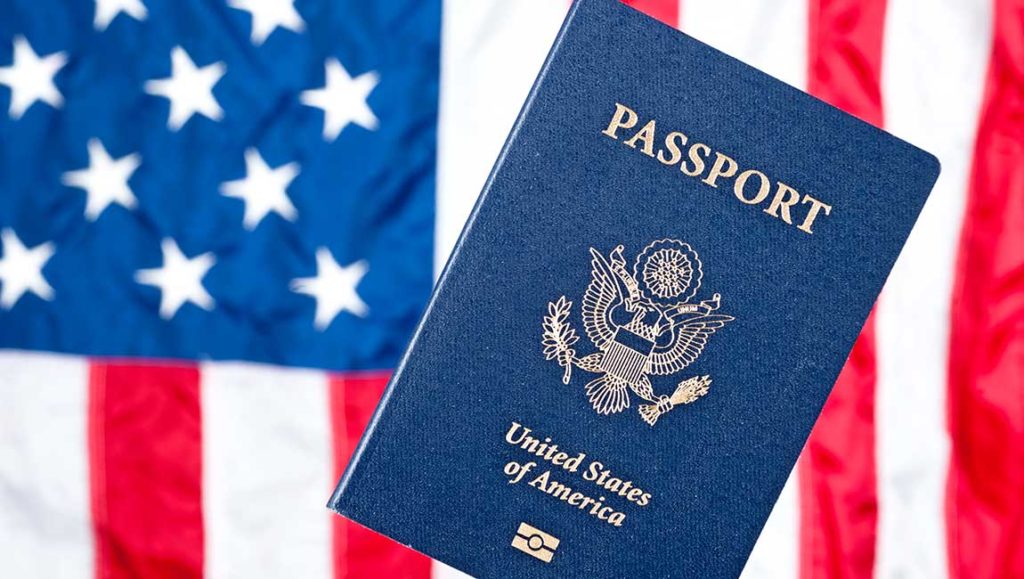Immigration Effects in Criminal Cases
Do I risk being deported? If you are not a U.S. Citizen and have a felony or misdemeanor charge, you should consider possible immigration effects.

Immigration Effects Can Include Deportation
There is a sizable immigrant population in southeastern Michigan. When an individual who is not a citizen or lawful permanent resident of the U.S., such as an admitted Alien, is “convicted” of a crime, there will likely be immigration consequences. The effects of a criminal conviction concern all non-citizens regardless of how long they have resided in the United States. The immigration effects of a criminal conviction can be direct (jail, probation, fines, etc.) or indirect (deportation, inadmissibility, loss of professional license, damaged reputation, difficulty in finding employment, etc.).
A criminal allegation is generally insufficient to trigger immigration proceedings; however, an allegation should cause serious concern. In some severe felony cases, U.S. Immigration and Customs Enforcement (ICE) can detain someone who is deportable pending the outcome of a criminal matter (this generally occurs in Federal Cases only).
What is a conviction for immigration purposes?
A “conviction” for immigration purposes is:
- a finding of guilt or admission of guilt, or
- a plea of no contest to a criminal allegation.
A common misconception is that probation, a plea under advisement, or a suspended sentence will not lead to deportation or other immigration consequences. This belief is untrue.
Another common misconception is that a plea taken under advisement or a deferred sentence will avoid potential deportation because it does not result in a state-level criminal record. If an immigrant pleads guilty and their sentence depends on compliance with certain conditions, a conviction still occurs, and that person is deportable. They are deportable even if the court doesn’t enter a formal conviction on their record. Another myth is that deferred judgments do not affect immigration.
A conviction under immigration law requires only the following:
- an admission of the elements of an offense and
- imposition of a sentence.
Probation counts as a sentence, and in many cases, the maximum penalty under Michigan law—not the actual sentence imposed—determines whether a person is deportable. Juvenile offenses and vacated sentences are not deportable offenses, yet sentencing under the Holmes Youthful Trainee Act (HYTA) will trigger the immigration consequences of a criminal conviction.

What types of crimes can trigger deportation?
Crimes that trigger immigration issues under the Immigration and Nationality Act (INA) are either “aggravated felonies” or “crimes involving moral turpitude.” The commission of certain crimes will render an Alien inadmissible or removable, and at times, both.
Aggravated Felony Convictions and Immigration Consequences
Aggravated felonies are listed in the Federal Immigration Statute (8 USC 1101(a)(43)) and include many crimes that are not considered felonies in Michigan. In those cases where an alien enters the U.S. within five (5) years of committing an aggravated felony, they become immediately removable. Immediate removal is a form of expedited removal under the INS.
Crimes Involving Moral Turpitude
The Immigration and Nationality Act does not explicitly list crimes involving moral turpitude (CIMT). They involve conduct “inherently base, vile, or depraved, and contrary to accepted rules of morality.” A conviction that qualifies as a CIMT will render an Alien inadmissible or removable. Examples are retail fraud (shoplifting), theft, fraud, domestic violence, spousal abuse, child abuse, OWI, DUI, and driving under the influence without a license.
Multiple Convictions and Inadmissibility
Though an offense on its own is not a CIMT or an Aggravated Felony, an alien convicted of two crimes, regardless of their classification under the INA, is immediately inadmissible.
Crime Involving Mortal Terpitude within Five Years of Entry into the U.S.
Under INA Sec. 237, an Alien convicted of a CIMT punishable by a year or more within five years of admission to the U.S. becomes immediately removable.
Drug Possession, Sale, or Manufacture
Aliens convicted of drug crimes might face mandatory or permissive deportation and other severe immigration effects and consequences. A conviction for possession, unless the offense qualifies for the personal use of marijuana exception, carries the possibility of deportation under INA § 237(a)(2)(B)(i). Drug trafficking, sale, possession with intent to sell, or delivery convictions often result in mandatory deportation or inadmissibility.

How does the country of origin impact the deportation and immigration effects of a criminal conviction?
When deportation is an issue, the immigration court can consider the country of origin and the potential effects and consequences. For example, the United States may be less likely to order a citizen of Iraq or Afghanistan to return to their former home in light of the political upheaval. Also, an immigration lawyer can argue that the United States should not deport someone because their country of origin will subject them to torture. Under most circumstances, people threatened with deportation have the right to have a hearing to determine if their deportation is warranted. A great immigration lawyer can help under these circumstances.
Can I re-enter the United States if convicted of a crime?
If found “Inadmissible,” pursuant to INA Sec. 212, an Alien outside the United States seeking a visa to enter the U.S. or an Alien within the U.S. seeking to adjust their status to a Lawful Permanent Resident (colloquially referred to as a Green Card Holder), will be barred from doing so, due to the immigration effects of the charges brought against them.

What happens to the family of an alien who is deported following a criminal conviction?
The aforementioned demonstrates the severely adverse effects of a conviction under State or Federal law on an Alien’s immigration matters. Such convictions may force an Alien to depart the U.S. and leave behind immediate family members, such as a spouse, children, or parents. Further, for an Alien eligible to adjust status to a Lawful Permanent Resident of the U.S., such a conviction may bar them from doing so.
Michigan Criminal Attorney Experienced with Immigration Effects of a Criminal Conviction
It is critically important that you understand the risks that you face, including the immigration effects and repercussions of a criminal conviction if you are a non-citizen or an Alien charged with a felony or misdemeanor crime. You should have the representation of an attorney who understands that you face a two-pronged dilemma of the crime charged and possible deportation. The criminal defense law firm, LEWIS & DICKSTEIN, P.L.L.C., has decades of experience dealing with criminal and immigration law issues.

Michigan Immigration Attorney
Immigration officials and judges have broad discretionary authority to grant or deny various discretionary immigration benefits. You need to consult with an immigration lawyer regarding the immigration effects of a criminal conviction, such as deportation, removal, re-entry, complications with obtaining citizenship, or any other criminally related immigration question. However, not all immigration lawyers are equal. Some attorneys are much more knowledgeable and effective than others. If you need an immigration lawyer, we can put you in the hands of someone who will not let you down.
Whether LEWIS & DICKSTEIN, P.L.L.C. represents you in a criminal case or not, we can help you find the right immigration specialist to help you. We are your best hope for avoiding a conviction that results in immigration effects. If you face a felony or misdemeanor charge, contact us right away for help.
Call us today at (248) 263-6800 for a free consultation or complete an online Request for Assistance Form. We will contact you promptly and find a way to help you.













